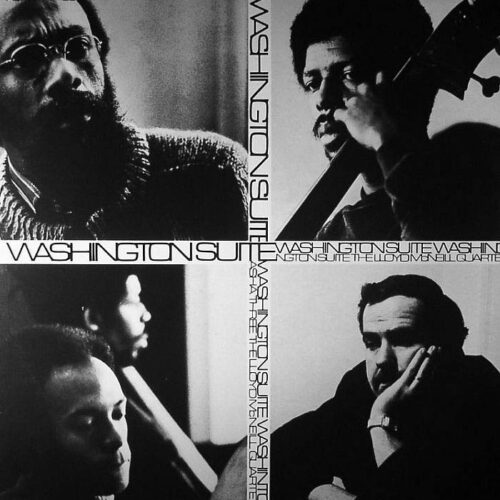Shaped by the American Civil Rights Movement of the 1960s and influenced by characters like Martin Luther King and Malcolm X, a handful of musicians started to create a form of »Black American music« in 1970. Jazz was the foundation of this style, which was to be coined by a variety of ideas and the freedom of thought: philosophy, myths and utopian ideas became part of this music, just as much as musical influences from the Far East and Africa, from classical music and dance, from gospel, funk, soul and blues. What came out is a kind of music that’s still as up-to-date as it was back then. Besides Alice Coltrane, The Art Ensemble of Chicago and Stanley Cowell, it was also Lloyd McNeill who was part of this »New Thing!«. McNeill (born in 1935) was especially exemplary for the »open mindedness« of that time – he didn’t differentiate between music, painting or poetry, he had made himself a home in the U.S. just as well as in France and Brazil and was committed equally to arts and politics.
But it was more than that which made him become one of the first black Professors in the United States. Washington Suite was the second LP of his Lloyd McNeill Quartet, composed for the Capital Ballet Company in his hometown, Washington D.C., recorded in March 1970 and initially (and so far exclusively) released in a small number on his very own label, the Asha Recording Company. The copies still existing from this release are now selling for 250 to 300 Euros. Now, Universal Sound re-releases the album with its original artwork in a limited vinyl edition of only 1.000 copies. The most well known title is the record’s opener Home Rule, which was already to be heard in a slower version on the compilation New Thing!. However, this version does not only amplify Lloyd McNeill’s flute-melodies, but also the song’s groove, highlighted even more by Marshall Hawkins’ bass and Robert Gravatt’s drums. Even though these funky breaks are more of an exception, the mood remains to be celebratory. Every now and then, it turns classical, like with Fountain In The Circle, which almost appears to be baroque, or it becomes buoyantly jazzy, like in Just 71% More. City Triptych, the track of 16 and a half minutes defining the B-side, illustrates once again McNeill’s compositional skills. Him and his companions have created a broad and colorful musical tapestry, which is much more than just a contemporary historical document.
Muriel Grossmann
Breakthrough
RR Gems


